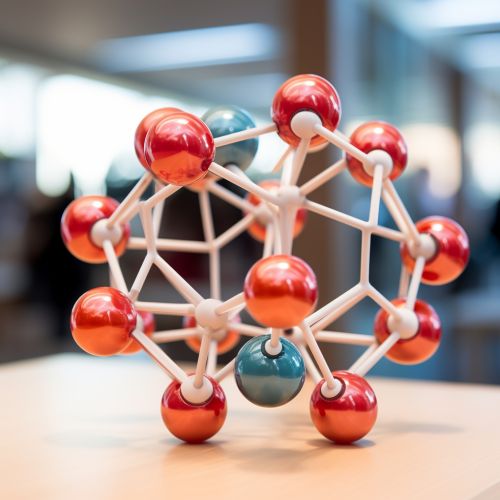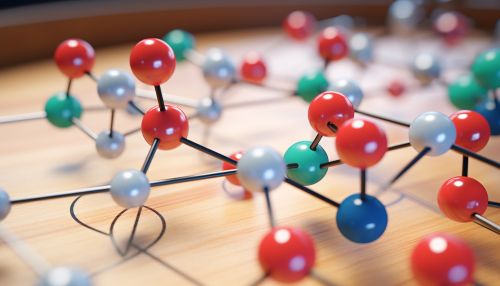Molecular Chemistry
Introduction
Molecular chemistry is a branch of chemistry concerned with the study of the physical and chemical properties of molecules, their behavior, and how they interact during chemical reactions. It involves the study of the structure of molecules, the forces that act upon them, and how they react to form new molecules.
Molecular Structure
A molecule is the smallest identifiable unit of a chemical compound. It is composed of two or more atoms that are chemically bonded together. The structure of a molecule is determined by the arrangement of these atoms and the chemical bonds that hold them together. The structure of a molecule can be represented in various ways, such as structural formulas, ball-and-stick models, and space-filling models.


Chemical Bonding
Chemical bonding is the process by which atoms combine to form molecules. There are three main types of chemical bonds: ionic bonds, covalent bonds, and metallic bonds. Ionic bonds occur when electrons are transferred from one atom to another, resulting in positively and negatively charged ions that attract each other. Covalent bonds occur when two atoms share one or more pairs of electrons. Metallic bonds occur between metal atoms, where electrons are free to move throughout the structure.
Molecular Forces
Molecular forces, also known as intermolecular forces, are the forces of attraction that hold molecules together. These forces are weaker than the chemical bonds that hold atoms together within a molecule, but they play a crucial role in determining the physical and chemical properties of substances. There are several types of molecular forces, including dipole-dipole forces, hydrogen bonding, and London dispersion forces.
Molecular Reactions
Molecular reactions are chemical reactions that involve the breaking and forming of chemical bonds to create new molecules. These reactions can be classified into various types, such as combination reactions, decomposition reactions, displacement reactions, and redox reactions. The rate of a molecular reaction is influenced by several factors, including the concentration of reactants, temperature, and the presence of a catalyst.
Applications of Molecular Chemistry
Molecular chemistry has a wide range of applications in various fields. In medicine, it is used in the design and synthesis of drugs. In materials science, it is used in the development of new materials with desired properties. In environmental science, it is used in the study of atmospheric chemistry and pollution. In food science, it is used in the study of the chemical reactions that occur during cooking and food preservation.
